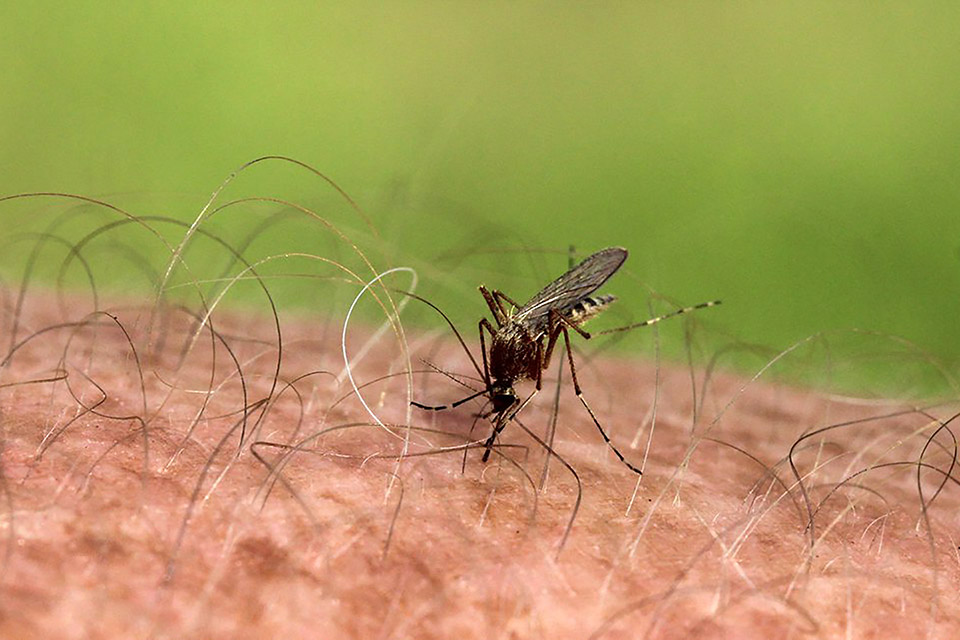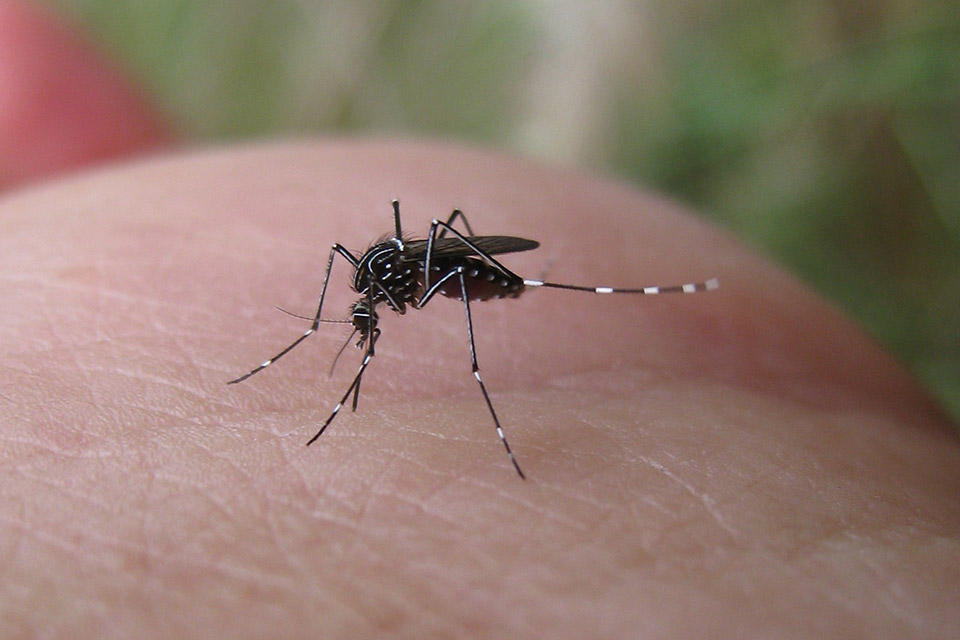While itchy bites are a valid reason to dislike mosquitoes, the risk of they pose of transmitting disease is a much more concerning fact. Several mosquito species—including some find right here in Missouri—can cause serious diseases in humans and animals.
Biology & Life Cycle
Mosquitoes are small, aquatic flies known for taking a ‘blood meal.’ Only female mosquitoes dine this way, as the blood—often of warm-blooded mammals—is needed for egg development. While a few species are semi-active during the day, most are active at twilight or just after dark.
The life cycle of a mosquito occurs on or around water. Female mosquitoes lay their eggs on the surface of water, or in close proximity to it. In fact, after taking a blood meal, a female may lay 100 to 400 eggs. From these eggs, adult mosquitoes will develop within two weeks.


Habitats in Missouri
Most species of mosquitoes develop in slow moving or stagnant water, commonly referred to as a ‘breeding sites.’ Common places include flood waters, ditches, marshes, around the edges of ponds and lakes, rain barrels, birdbaths, wading pools, old tires, plastic containers, clogged gutters and more. In short, do not let water stand near your home or businesses!
Diet & The Search for Food
Missouri is home to approximately 50 species of mosquitoes. The most common species, the little brown house mosquito, comes out around sunset and is capable of transmitting the West Nile Virus—a serious public health concern. The mosquito’s thirst for warm-blooded mammal blood and human’s propensity for creating ideal breeding sites, such as tires, buckets and standing water, is a dangerous combination.
Request a Free Pest Inspection
Request a Free Pest Inspection
Or call or text us at 636-297-1335
Or call or text us at 636-297-1335
Management & Eradication
Please visit the University of Missouri’s Mosquitos webpage for more information about mosquitos.

